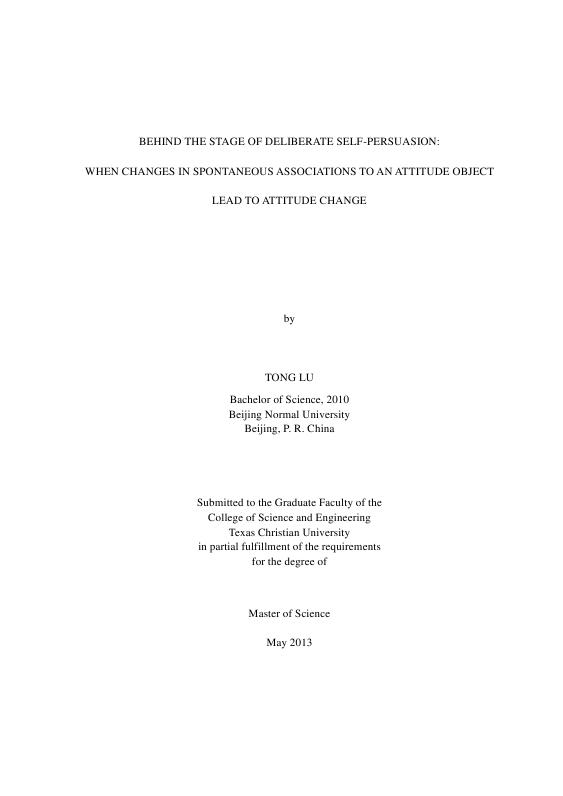Behind the stage of deliberate self-persuasion: when changes in spontaneous associations to an attitude object lead to attitude changeShow full item record
| Title | Behind the stage of deliberate self-persuasion: when changes in spontaneous associations to an attitude object lead to attitude change |
|---|---|
| Author | Lu, Tong |
| Date | 2013 |
| Genre | Thesis |
| Degree | Master of Science |
| Abstract | Modern theory and research on evaluative processes, combined with a comprehensive review of deliberate self-persuasion (Maio & Thomas, 2007), suggest two types of strategies people can use to construct new, more desired attitudes. Epistemic strategies change the perceived valence of associations activated by the attitude object. Teleologic strategies, in contrast, keep undesired associations from being activated in the first place, thus obviating the need to change their perceived valence. Change in perceived valence of associations, therefore, might predict attitude change better when people pursue epistemic than teleologic strategies for deliberate self-persuasion. This hypothesis gained convergent support from two studies in which use of epistemic versus teleologic strategies was measured as an individual difference (Study 1) and manipulated (Study 2). The results of these two studies supported the theoretical distinction between the two strategies and suggested further research directions. |
| Link | https://repository.tcu.edu/handle/116099117/4481 |
| Department | Psychology |
| Advisor | Lord, Charles G. |
Files in this item
This item appears in the following Collection(s)
- Masters Theses [4182]
© TCU Library 2015 | Contact Special Collections |
HTML Sitemap



